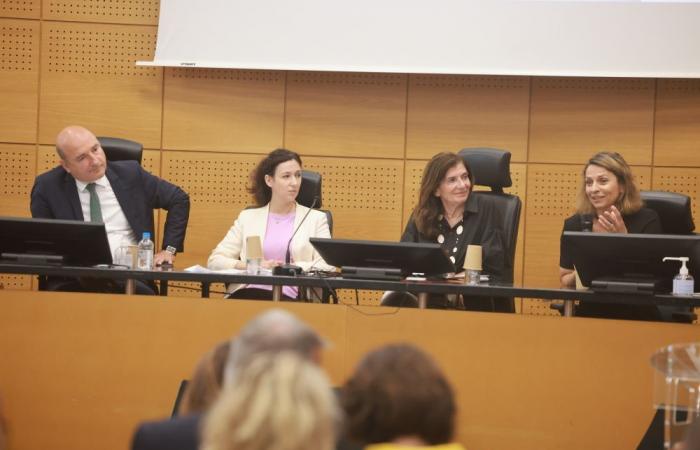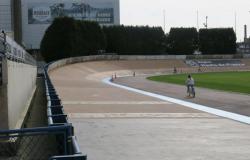
Magistrate, lawyer, prosecutor, academic or journalist… they all know the great hall of the Bastia courthouse well. Each in their place, they have participated or attended a trial at the assizes at one time or another. The particularity, in this Friday June 28is that they are all sitting side by side, where the president and the jurors usually sit. Not to defend, request, judge or report but to participate in a round table on “Criminal justice and the functioning of the assize courts in Corsica”.
A theme that the daily journalist The world, Ariane Chemin, in her capacity as moderator, chose to introduce through a “anecdote”. The memory of an assassination trial brought in the early 2000s against relatives of a nationalist leader. A trial during which she saw the lawyer for the civil parties turn to the members of the jury and say to them: “I know you have been approached.”
Where we talk about Tralonca
Perfect introduction. Ultimately, it is this question – that of the vulnerability of juries – that the problem boils down to. Prosecutor of Marseille, stationed in Bastia from 2014 to 2017, Nicolas Bessone don’t say anything else. “What historians tell us from the 1830s still exists in Corsica Today, he explains. We still have trouble putting together jury lists and the procedures are always characterized by the absence of witnesses, except through the practice of false testimony.”
An analysis which finds a counterpoint in the intervention of Jean-Paul Eon, former president of the Bastia bar. For him, the idea that criminal justice is dysfunctional in Corsica is largely due to “stereotype”. And if there is a crisis of confidence in justice, it is also because “very often, the State has abandoned the judicial institution.” An example: “After the Tralonca press conference (held by the FLNC in 1996, Editor’s note)in which 400 people participated, there was not even a judicial inquiry opened. The Corsicans remember that.” Applause in the room.
For professional juries
So how can we restore this trust? Former president of the Corsican assize court, Gaëlle Colin does not have a ready-made answer. But she does at least outline a path: “In my opinion, we must avoid falling into the trap of cultural specificities; avoid justifying or minimizing certain behaviors for cultural reasons. And show that we do not render justice here in a way that is different from elsewhere.”
A principle on which everyone agrees. For Nicolas Bessone, the problem does not come so much from the specificities of the island as from the evolution of organized crime on a national scale. In line with a bill that the Minister of Justice, Éric Dupont-Moretti, wanted to submit in the fall – before the dissolution of the National Assembly took place – he advocates abandoning popular juries in matters of banditry. “There is an absolute necessity to have organized crime tried by juries composed of professional magistrates, he assures. We have to look at the danger. Who could imagine, today, having terrorist cases judged by popular juries? New applause.





